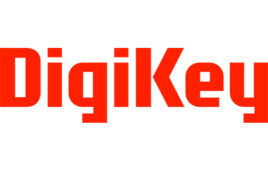You might be surprised to know that several different theories have been posited about what is ethical and unethical in business. Let your conscience—and the Federal Guidelines—rule your choice.
Two radically opposed views have emerged about the value of ethics in business. One view continues to insist that business ethics is an oxymoron. The health and success of a business should be looked at solely in terms of its financial health. The other view considers that promoting an ethical culture is an integral part of any financially successful company. In the wake of the Enron fraud and other well-publicized corporate scandals, there are new federal guidelines, which may provide the necessary incentive for all companies to take ethics seriously. The result, like it or not, is that an ethical audit can be an effective part of compliance and financial risk management. 
Profit or ethics?
There are still many entrepreneurs who think that a healthy company can be identified only in terms of financial assessment. Their focus is solely on profits and the bottom line. So we find economist Milton Friedman maintaining “there is one, and only one, social responsibility of business, to use its resources and engage in activities designed to increase its profits… so long as it stays within the rules of the game, which is to say engages in open and free competition without deception and fraud… to make as much money for its stockholders as possible.” (Capitalism & Freedom, 133.) This view suggests that a financial audit will show us whether a company is healthy or not. Are the order books filled? Is investment secure? Are shareholders receiving reasonable returns? Is borrowing and debt well managed? Is business income expanding? Are there good profit margins? Ethics have little or no place in this analysis of success.
On the other hand, more CEOs today have come to recognize that ethics can be an integral part of any company. To gauge the health of a company, we should focus not merely on a financial audit. A more rounded view of corporate health requires us also to undertake an ethical audit of the company. This provides answers to a valuable set of questions about the internal ethos, the moral character of a company. Some would also recognize this as a social audit. For example, in what ways does the business act responsibly in the community? How can it fulfil social, moral and regulatory obligations to investors, employees, vendors, consumers, and the environment? An
ethical company is seen in positive terms as a “good corporate citizen.” Many would argue that an ethical company is also more profitable in the medium to long term. The corporate image is enhanced and good public relations established. Ethical employment practices, the fair handling of hiring, firing, and disputes strengthen the human resources functions. This leads consumers, employees, and the public at large to place more trust in such companies, as do investors. Trust in a company’s moral health is likely to be reflected in market confidence, leading to financial benefits and thus a favorable impact on the bottom line.
Nonetheless, many CEOs still view an ethical audit in negative terms. Business ethics seem a barrier to financial success, a form of interference in the free market. Many people in business feel that the main purpose of any company is to maximize profits. Period. Ethics may have value on a personal level. However, when you come to work you should leave behind your personal morality and follow rules and standards set by the employer. Employees should be good team players who follow the rules of the game established by the company. For example, a company routinely lets middle management claim expenses for business-class travel on overseas trips, even when the employee in fact travels economy class. A manager who only claims economy class expenses might be seen as breaking the rules of the game.
Even this negative view of the value of ethics is unlikely to approve of criminal behavior. Indeed, few would publicly approve of companies that show a flagrant disregard of ethical and regulatory standards. We all know about such companies. They are likely to employ people for low wages, provide no benefits, and permit unsafe or unhealthy working conditions. There are some individual entrepreneurs who, for quick or excessive profit, hide behind a corporate identity, overcharge customers, fail to pay taxes, disregard environmental standards, produce poor quality products or services, cut corners, and compromise consumer safety. It is true that for these individuals acting unethically may prove highly profitable in the short term. Eventually, of course, many unethical companies may face regulatory penalties and fines or go out of business.
Not just owners of these unethical companies, but also managers and employees will cheat from time to time, lie, or defraud investors and customers. In some ways, they are no different from people in the world at large who act unethically. They will face appropriate legal punishment when caught. Management guru Peter Drucker is clear: “Men and women do not acquire exemption from ordinary rules of personal behavior because of their work or job…the problem is one of moral values and moral education of the individual…. But neither is there a separate ethics of business nor is one needed. All that is needed is to mete out stiff punishments to those – whether business executives or others — who yield to temptation.” (The Essential Drucker, 64.)
In other words, it is people, not abstract corporations who act ethically or unethically. The problem is that we all think we can identify people who act unethically. We recognize that certain acts ought not to be done. This recognition is guided by a sense of right and wrong, which is based on our personal code of ethics. However, not everyone agrees about what is right and wrong today. There are many theories about what is ethical and unethical in business. Examples include Relativism, Utilitarian ethics, and Egoism.

The fundamental principles
We live in an age where a culture of Relativism is prevalent. Relativism asserts that all opinions about ethics and morals are equally valid. Your view is as good as mine. We should work on a principle of give and take. There are no absolutes when talking about right and wrong. Moreover, we should tolerate other peoples’ ethical views even though we do not agree with them. Ethics are culturally determined. So, what is unethical when doing business in the U.S. may not be unethical when doing business in China. For the Relativist, the only fixed position on ethics is that taking a fixed position on ethics is wrong. Another theory about ethics is that we can tell what conduct is good or bad by looking at the consequences of our actions. If the consequences show the greatest happiness for the greatest number of people, then we have acted ethically. So, if only 10% of our products cause people injuries or loss, but 90% of products are very safe, we have acted ethically. This is the so-called Utilitarian view of ethics. Another view of ethics is known as the Egoist theory. Here, those driven solely by selfish motives for personal gain run the business. The motto is “what is good for me is good for the company.” Even charitable donations would be seen as primarily good for the company image not motivated by concern for the community. Cutting corners and cheating on competitors would be justified for an Egoist, as long as the result was that the company profited by the wrongdoing.
These theories are all very well but they give conflicting guidance on business ethics. Most business managers would need something more tangible to justify an ethical audit of the company. The accounting scandals of a few years ago involving large corporations such as Enron should have provided CEOs with an incentive to introduce ethical guidelines. However, it turned out that Enron did in fact have a system of stringent in-house ethical guidelines. What was lacking was compliance with the Enron Code of Ethics; it was suspended by the company’s directors, enabling Mr. Fastow and Mr. Lay to mislead and defraud investors. In any case the reaction of most CEOs to Enron would be: “My company isn’t like Enron…I know my staff, the right thing to do, and who to trust. Why would I need ethical guidelines?” Besides, most managers are aware of the implications of the Sarbanes-Oxley legislation, which has tightened accounting and auditing practice. Surely, the law provides better protections now against Enron-type fraud. The average CEO might also wonder: Even if I did want to introduce ethical guidelines, where would I find them, and how would I introduce a code of ethics in my company?
The law says…
The unlikely answer to the question why create ethical codes and ethical audits, is published by the U.S. Government in The Federal Sentencing Guidelines of 2004 (www.ussc.gov/2004guid/8b2_1.htm). These Guidelines provide a practical incentive to focus on ethics and create a culture of risk management where fraud is identified and reported at an early stage. If a company implements training programs in ethics and effective compliance programs, then the Guidelines offer a financial “carrot” to the company. In the event that employees commit fraud, for example stealing corporate assets or income, the company will incur reduced fines when it is prosecuted, if it can show that ethics training has been provided. Absent an “effective compliance and ethics program,” stiffer penalties will be levied against the company.

http://www.ussc.gov/2004guid/8b2_1.htm
Similar guidelines have existed since1991. However, it seems that many companies looked on ethical compliance as ethical window dressing, or as a part of good public relations. What mattered was that there was a written ethics policy. The practical implementation of ethical codes was frequently ignored. The Assistant Attorney General’s office described these codes as largely “paper programs” with no real substance. So what makes the 2004 Guidelines more effective?
First of all, the 2004 Guidelines are mandatory and require introduction of corporate ethics training and compliance programs. They apply to “all organizations, whether publicly or privately held.” The aim is to promote “good corporate citizens.” Compliance with ethical standards is geared to “standards of conduct and internal controls that are reasonably capable of reducing the likelihood of criminal conduct.” Here we have the concept of an ethical audit as the basis of a culture of compliance with the law. The board of a company is responsible for assessing risks (e.g. of crime or fraud) to the company. They must be proactive in providing and managing ethics awareness and relevant training for employees. They must also update and monitor the programs provided. Employees are to be encouraged to report misconduct, noncompliance or ethical problems. This gives a new twist to the conventional view of a corporate “team player.” Now, cooperation to prevent unethical behavior rather than commit it is encouraged. Previously, fear of retaliation or of being fired had been perceived to be a significant barrier to the effectiveness of ethical codes. Today, the Sarbanes-Oxley Act and the 2004 Guidelines attempt to protect employees who “whistle blow” about unethical or illegal conduct within the organization.
Ultimately, ethics may create social capital, which has value within the company. Many recent studies have shown that a company focused on a common social goal of mutual trust and compliance with basic ethical standards tends to perform better in the market place. It is certainly worthwhile to consider afresh what the proper role of ethics might be in your organization. The first step would be to contact the company lawyers and recruit an ethics consultant. Their remit: to consider how best to implement an ethical audit in the most profitable way for your organization.
Andrew Trew is a lawyer and ethics consultant. He teaches Business Ethics at John Carrroll University, Cleveland, Ohio, and is Chairman of the Cleveland Clinic Health System IRB, Cleveland, Ohio.
::Design World::
Filed Under: Commentaries • insights • Technical thinking





Tell Us What You Think!